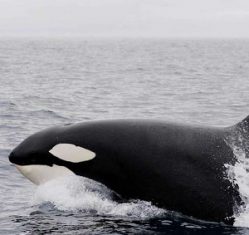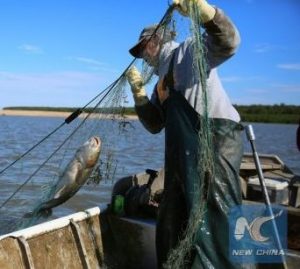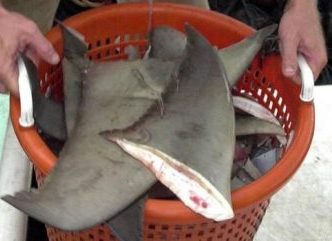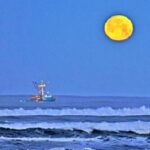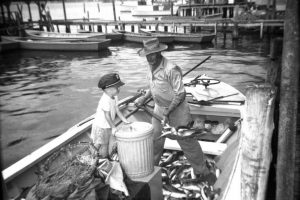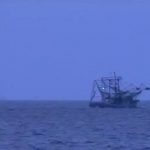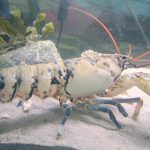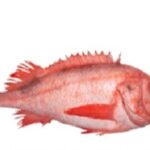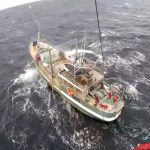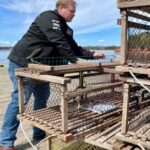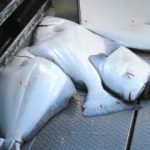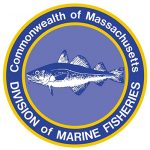Monthly Archives: March 2019
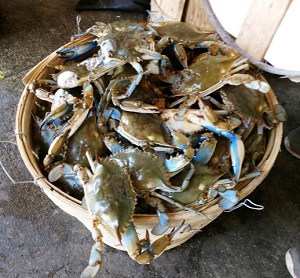
New experiment raises possibility of fresh N.C. soft-shell crabs year-round
An experiment to farm soft-shell crabs in North Carolina ponds could augment declining wild stocks and lead to having plenty of the delicacy fresh almost year round. Scientists from North Carolina and Mississippi will work together in a three-year venture to raise blue crabs and harvest them for the lucrative soft-shell market. Fresh soft crabs flood the market typically in May and June, at the height of molting season. A $339,239 grant from the National Oceanic and Atmospheric Administration will fund the project, managed by Sea Grant programs in both states. >click to read<20:24
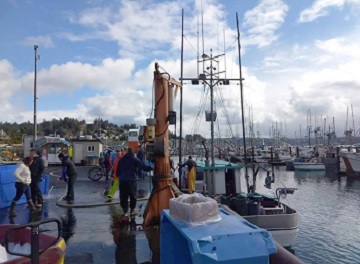
Port of Newport may tie moorage increase to upgrades
Faced with a growing stack of infrastructure improvements needed to keep the Port of Newport operational, its management is floating a plan that would tie an increase in commercial moorage directly to electrical upgrades on Port Dock 5 and Port Dock 7. Rates would increase each of three years under a proposal for which the port is now seeking feedback. The money would be a sure source of construction funds rather than the port relying on grants, which are questionable in their availability and how they can be used, said Director of Operations Aaron Bretz. “Other ports are wrestling with the same thing — they’re trying to raise rates and not succeeding and they have these infrastructure needs,” Bretz said. >click to read<18:02
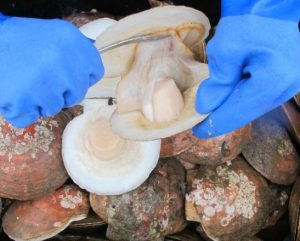
Maine shelled out fewer prized scallops in 2018
Maine’s scallop harvest declined by about a third in 2018, marking the first time in several years that the valuable fishery took a step back. The state’s scallop harvest is a drop in the bucket within the worldwide industry, but Maine scallops are prized because of their size and value. Maine scallops are also a conservation success story. >click to read<16:53
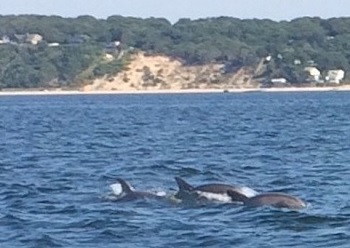
We destroyed the L.I. Sound in 50 years: an eyewitness account
I grew up in the farmhouse where I now live, and the place that always gave me solace and comfort was the Long Island Sound. Every time I went, there was something more to discover and see — animals, birds and fish in huge numbers, everywhere.,,, Fast forward to now. Most of the species of fish, birds, lobster, oyster, clams and mussels are gone – rarely seen or heard of any more. The mussel banks that held the sand and helped against erosion and 95 percent of the eelgrass are gone. What’s left is a sewer of huge dead zones all summer and filth washed out of rivers and streams in Connecticut, chemicals washed off of yards, out of boats, down roads and flushed directly into the Sound when it rains, seeped into the water through old septic systems still being used — and overflow when the sewers in the western end of the Sound get a lot of rain or a pipe breaks. >click to read<12:34
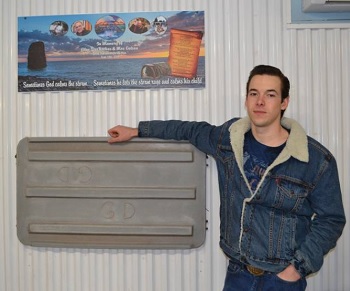
Tanner Gaudet sang to a seal, seagulls while fighting for his life after boat sank off P.E.I.
As he drifted away from the North Cape reef last September in the cold waters of the Gulf of St. Lawrence, Tanner Gaudet found himself in the company of two seagulls and a seal. Moments earlier, the 22-year-old lobster fisherman had freed himself from the Kyla Anne by flipping open the sunroof in the rapidly sinking lobster boat’s cabin and, using the small opening, escaped before the vessel slipped beneath the crashing waves. Two other members of the boat’s crew lost their lives in the Sept. 18 fishing tragedy.,,, Disaster for the three-man Kyla Anne crew struck in an instant. >click to read<11:12
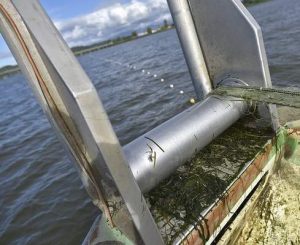
A major policy change – Washington State will allow gillnets in lower Columbia this fall
The Washington Fish and Wildlife Commission has agreed to allow the use of gillnets during the fall salmon fishery on the lower Columbia River while state fishery managers work with their Oregon counterparts to develop a joint, long-term policy for shared waters. The move is a major change in policy. Washington policy, approved in 2013, intended for the commercial fishery to have completed a transition from gillnets to alternative gear this year and be relocated away from mainstem Columbia River areas. However, the use of alternative gear has not yet been refined and the off-channel areas have been determined to be unsuitable. >click to read<10:05
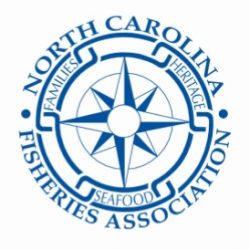
North Carolina Fisheries Association Weekly Update for March 8, 2019
>Click here to read the Weekly Update<, to read all the updates >click here<, for older updates listed as NCFA >click here< 18:59
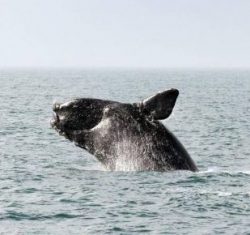
U.S. Marine Mammal Protection Act regulations could impact Canadian fishers
While there were no active harvesters at the Department of Fisheries and Oceans (DFO) public meeting on Thursday, Feb. 28, at the Clarenville Inn, the resource managers still discussed two topics which will affect fishers in the future — the United States’ marine mammal protection act and potential fishery monitoring policies. DFO resource manager Jackie Kean explained the United States Marine Mammal Protection Act is nothing new, it’s been around since the 1970s. However, DFO made clear that all countries who export to the U.S.A. must meet their requirements for marine mammal bycatch while fishing various species in local waters. >click to read<18:33
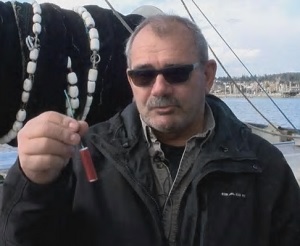
BC Fisherman touches off a “firecracker”, Media blows it’s mind!
Federal fishery officials are investigating after a video was posted to Facebook featuring a man throwing a small explosive toward a group of sea lions in the Strait of Georgia. The clip displays commercial fisherman, Allan Marsden lighting the fuse of a ‘bear banger’ — a small explosive device used to scare bears or other animals — before tossing it into the water. Marsden says he used the bear banger to disperse the sea lions — not to kill them. (If you want to see killing, look at the comments at the article. They’re killing me! lol! ) >Video, click to read<14:09
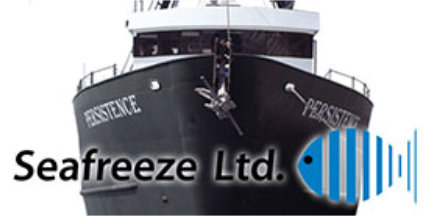
Always Top Quality! Your Seafreeze Ltd. Price Sheet for March 2019 Has Arrived!
Contact our sales team today @ 401 295 2585 or 800 732 273 For the complete price list from Seafreeze Ltd., >Click here< – We are Direct to the Source-We are Fishermen-We are Seafreeze Ltd! >Click here< to visit our website!12:25

A Trump official said seismic air gun tests don’t hurt whales. So a congressman blasted him with an air horn.
A hearing on the threat seismic testing poses to North Atlantic right whales was plodding along Thursday when, seemingly out of nowhere, Rep. Joe Cunningham (D-S.C.) pulled out an air horn and politely asked if he could blast it. Before that moment at a Natural Resources subcommittee hearing, Cunningham had listened to a Trump administration official testify, over and over, that firing commercial air guns under water every 10 seconds in search of oil and gas deposits over a period of months would have next to no effect on the endangered animals, which use echolocation to communicate, feed, mate and keep track of their babies. It’s why the National Oceanic and Atmospheric Administration gave five companies permission to conduct tests that could harm the whales last year, said the official, Chris Oliver, an assistant administrator for fisheries. >click to read<11:29
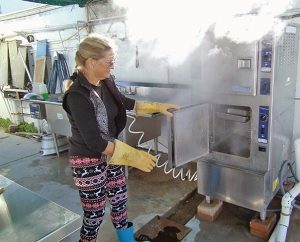
Florida Keys Maritime business back after Hurricane Irma
Editor’s note: It’s been 542 days since Hurricane Irma swept the Keys. By in large, the Keys have recovered. But there are still some pockets that are working on rebuilding, including commercial fishermen. Many lost thousands of traps and are still struggling against the vagaries of Mother Nature. It’s something to note this weekend of the Marathon Seafood Festival. Many homes and businesses were destroyed when Hurricane Irma swept through the Florida Keys. Some will never be rebuilt; many small businesses were forced to close forever. >click to read<10:48
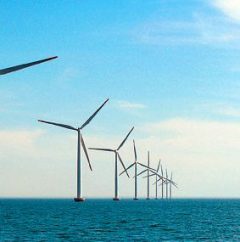
Offshore wind developers court recreational fishing community
Offshore wind energy developers are courting recreational fishermen in the New York Bight, who could gain dozens of new fishing spots around turbine towers, but worry about impacts of the massive projects on traditional fishing grounds. “Obviously the hot button for us is access,” said charter captain Paul Eidman of Anglers for Offshore Wind Power, a project of the National Wildlife Federation, which hosted the meeting in Toms River, N.J., on Wednesday along with the American Littoral Society for offshore wind companies and recreational fishermen. >click to read<09:31:04
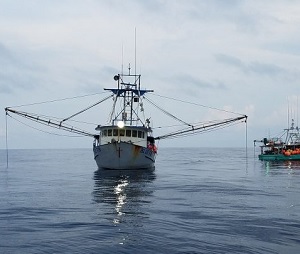
Blended Waters: It’s simply unbelievable!
It’s safe to assume that most of our population enjoys seafood and it’s likely that if you’re reading this, you do as well. I know I do. But not everyone who enjoys a plate of fish, shrimp, crab etc. realizes what goes into retrieving the delicious seafood we eat. Please let me enlighten you just a bit.,, Most of the fishermen I know are very serious about what they do. They work hard . . . always, but when the weather’s against them . . . they hardly work. It isn’t because they’re lazy or irresponsible, it’s because no vessel owner or operator in their right mind will venture off shore if he/she feels the risk is too great; not to mention the expenditures just laid out for the “trip.” If a nor’easter is headed our way, leaving the dock isn’t wise. >click to read<
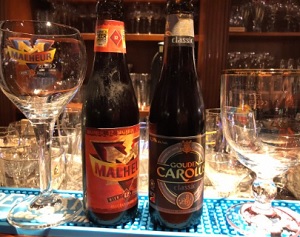
Feds Pay Millions for Lobster Tail, Booze, Toys in End of Year Spending Binge
Federal agencies billed taxpayers millions for lobster tail, alcohol, standing desks, golf carts, and more frivolous expenditures before budgets ran out at the end of the fiscal year. A new analysis released by OpenTheBooks.com found 66 agencies spent $97 billion last September, the final month of fiscal year 2018. The end of the year taxpayer-funded spending spree included contracts with Coors, millions on iPhones, furniture, and CrossFit equipment. >click to read<18:38

Keating Co-Sponsors Save Right Whales Legislation, – Saving Right Whale Demands New Approach
Today, Congressman Bill Keating was an original cosponsor of the Scientific Assistance for Very Endangered (SAVE) Right Whales Act. The legislation is sponsored by Congressmen Seth Moulton (MA-06) and John Rutherford (FL-04). The other original cosponsors are Jared Huffman (CA-02) and Rep. Bill Posey (FL-08).,, The SAVE Right Whales Act of 2019 would create government grants that states, non-profits, and members of the fishing and marine shipping industries can use to fund research and efforts that restore the North Atlantic right whale population. An interesting list at the bottom of the page. >click to read< 16:35
From Pew – Saving Endangered Right Whale Demands New Approach ->click here<

FISH-NL charges Offshore Fishery Association with advertising ‘misleading’ information
The Federation of Independent Sea Harvesters of Newfoundland and Labrador (FISH-NL) says an ongoing advertising campaign by the Offshore Fishery Association promoting its economic impact is misleading until certain facts are revealed.,,, The Offshore Fishery Association — representing the factory-freezer trawler sector — launched an aggressive advertising campaign recently branding itself as an economic contributor, employing more than 2,000 Newfoundlanders and Labradorians in 300 communities, and with more than $90 million in salaries. But that economic impact may be misleading in the absence of answers to key questions. >click to read<14:01

Governor Baker touts promise of wind power, new technology
New York recently set a long-term goal of generating 9,000 megawatts of energy from offshore wind power, while New Jersey plans to build 3,500 megawatts. But Massachusetts is seeking to produce just 1,600 megawatts, a target critics say is too modest. Some environmentalists had hoped that Governor Charlie Baker would announce a loftier goal Wednesday at a forum in Boston about the future of offshore wind power.,,, Baker also spoke of the need to ensure that wind farms don’t place an undue burden on the region’s fishing industry. >click to read<13:38
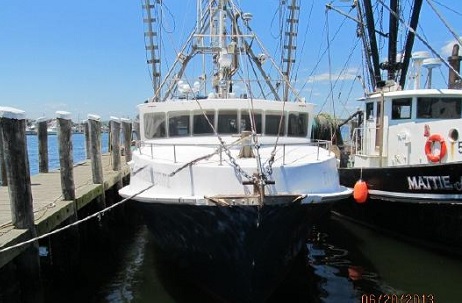
Athearn Marine Agency Boat of the Week: 65′ Fiberglass Stern Trawler, 350HP 12-V-71, State/ Federal Permits
Specifications, information and 26 photos >click here< To see all the boats in this series, >click here<12:15
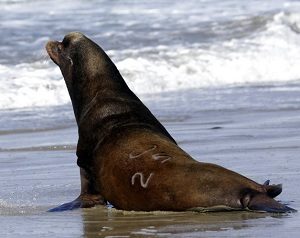
Scientists warn of ecosystem consequences for proposed B.C. seal hunt
A British Columbia group wants to revive the seal and sea lion hunt on the west coast, provoking a debate about the controversial practice and prompting scientists to warn of consequences for the ecosystem.,,, But Dr. Peter Ross of the Vancouver Aquarium says there’s no data to suggest a cull would help salmon species. “Personally and professionally, I don’t think it would make an ounce of difference,” he said. (a deep thinker!),,, Andrew Trites, who oversees the marine mammal research unit at the University of British Columbia, said perceptions about rising seal and sea lion populations are skewed. >click to read<09:43
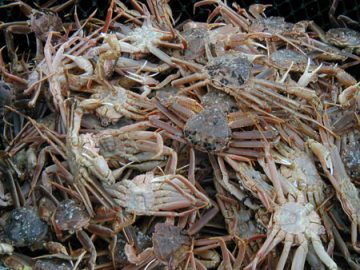
FISH-NL takes stand against precautionary approach management system for snow crab; ‘inshore harvesters don’t want it’
The Federation of Independent Sea Harvesters of Newfoundland and Labrador (FISH-NL) has taken a stand against the implementation of the so-called ‘precautionary approach’ management system in the commercial snow crab fishery. “The message is loud and clear from all coasts — inshore harvesters don’t want it,” says Ryan Cleary, President of FISH-NL. “Fishermen say the management system that’s in place now works well enough, and follows the normal cyclical nature of the stock.” The precautionary approach would have three levels or zones of classification — critical, healthy and cautious, with talks are ongoing between DFO and the FFAW-Unifor on setting the reference points dividing each category. FISH-NL is against the introduction of the precautionary approach altogether. >click to read<17:20

New marine refuges in the Howe Sound to protect glass sponge reefs
Keeping our oceans clean, safe and healthy is essential for our environment and our economy. The Government of Canada is committed to protecting the ocean and the abundance of marine biodiversity that calls it home. Today, Minister for Fisheries, Oceans and the Canadian Coast Guard, the Honourable Jonathan Wilkinson, announced the establishment of eight marine refuges in Howe Sound to protect nine newly discovered glass sponge reefs. Fishery closures to preserve the glass sponge reefs will take effect in advance of the spring fishing season and apply to all commercial, recreational and Indigenous bottom contact fishing activities. >click to read<16:43
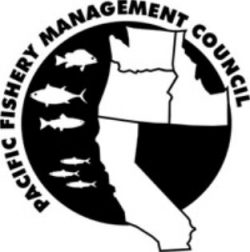
Reposted: Pacific Fishery Management Council meetng in Vancouver, WA, March 6-12, 2019
The Pacific Fishery Management Council (Council) and its advisory bodies will meet March 6-12, 2019 in Vancouver, Washington at the Hilton Vancouver Washington, 301 W. Sixth Street, Vancouver, WA 98660. Agenda and Meeting Notice, >click to read< Listen to the March Council meeting live <click to listen<16:20
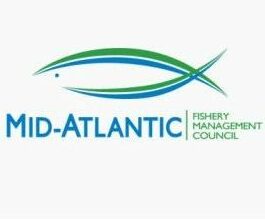
Reposted: Mid-Atlantic Fishery Management Council meeting in Virginia Beach,March 6-7, 2019
The Mid-Atlantic Fishery Management Council will meet March 6-7, 2019 at the Hilton Virginia Beach Oceanfront (3001 Atlantic Avenue, Virginia Beach, VA 23451, Telephone 757-213-3000) Briefing Materials & Agenda Overview Agenda >click here< Attend Meeting with Adobe Connect >click here<16:05
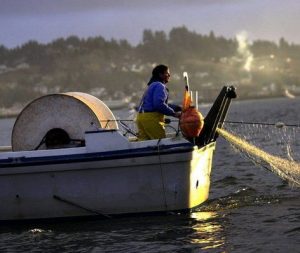
In major reversal, WA agrees to gillnets on Columbia in 2019
The Washington Fish and Wildlife Commission agreed last week to allow the use of gillnets during the fall salmon fishery on the Lower Columbia River while state fishery managers work with Oregon counterparts to develop a joint long-term policy for shared waters. The commission, appointed by the governor to set policy for the Washington Department of Fish and Wildlife, took that action and received public comments on proposed hunting seasons for 2019-21 during a public meeting March 1-2 in Spokane. The commission’s action to extend the use of gillnets was one of a number of recommendations for Columbia River fisheries developed by a joint committee with members of the Oregon Fish and Wildlife Commission. Oregon’s full commission will also consider the recommendations when it meets later this month. >click to read<Reposted from yesterday 15:53

Impending whale protections worry fishermen
With the majority of American lobsters caught in Maine, the state’s lobster fishermen could bear the brunt of changes in federal fishery regulations to save the endangered right whale. At the March 1 Fisherman’s Forum update on the threat of extinction for the North Atlantic right whale, it became clear regulators believe changes to fishing gear will be announced sometime this year. Right whale presentation – National Oceanic and Atmospheric Administration official Mike Asaro explained that most of the remaining 450 North Atlantic right whales are male, with a population of about 100 females,,,. >click to read<16:17
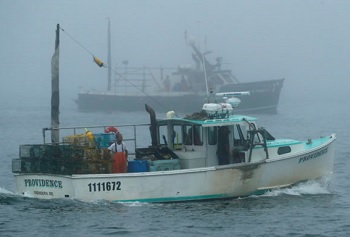
Despite a banner year, looming bait crisis leaves plenty of Maine lobstermen anxious
Patrice McCarron, executive director of the Maine Lobstermen’s Association, is worried about the severity of herring restrictions imposed by the federal government after the species failed to reproduce in sustainable numbers last year. “It’s about as bad as we can imagine, but we don’t yet know what it’s going to translate to for the fishermen,” McCarron said. McCarron said that Maine fishermen face a shortage of some 50 million pounds of bait in the coming season. “We’re seeing an 84 percent reduction in that particular source of bait, so we’ll have less than 5,000 metric tons, which will probably be caught in a week, in one week,” she said.>click to read<12:04






